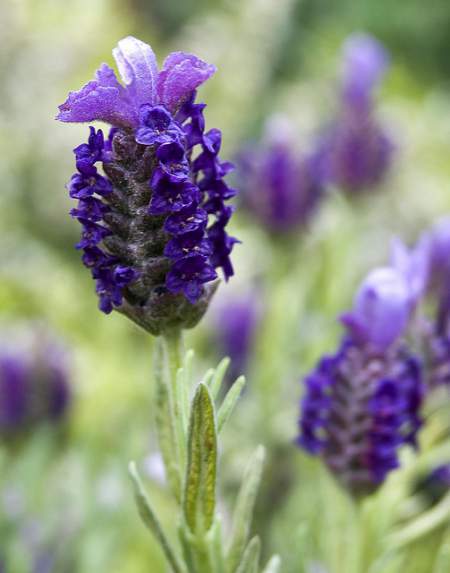
Essential oils are prominent for healing benefits. But, in hypersensitive people symptoms like runny nose, headache, hives, swelling of throat and watery eyes can be experienced. These signs may denote lavender allergy symptoms.
Every time a person see nasal congestion, rashes over skin and other allergic signs doesn’t mean he/she is sensitive towards lavender. Person must get diagnosed by allergist to determine the allergic substance.
Lavender oil is extensively used in aromatherapy for its calming effect. However, when a sensitive person inhale, ingest through tea or touch this natural oil. Immune system reacts adversely by releasing IgE antibody molecules.
These IgE molecules trigger mast cells and a reaction is stimulated between histamines and foreign substances.
Symptoms of Lavender Allergy
Reaction can be mild or moderate, in rare cases the severe allergic reaction can also be experienced by the person.
Severe symptoms of allergy may result fatal, so he/she must be taken to immediate medical attention without any delay.
According to Medline Plus, skin rashes, burning sensation in throat and eyes, swelling of throat, blurred vision, headache, nasal congestion, indigestion, nausea, vomiting, diarrhea, hives and difficulty in breathing are most common symptoms of lavender allergy.
Excess amount of lavender oil may results in drowsiness and may react with other sedative medications. You must consult your physician before preferring lavender oil as a home remedy.
- Geraniol, linalool and linalylacetate are few notable allergens in lavender.
- A study concludes that 4% of people who’re allergic to cosmetic products are sensitive to lavender oil.
- Medications that include lavender oil due to its medicinal properties also reported to cause allergic reaction.
- Ingesting of related family of lavender also resulted in adverse symptoms.
Diagnosis and Treatment
As mentioned above, allergens in this natural oil reacts with molecules released by immune system, when you ingest with a tea, topically apply for cosmetic benefits or when you inhale during aromatherapy.
However, it’s not recommended to determine the allergen based on above mentioned symptoms. Due to lack of knowledge, you may catch the wrong allergen and continue using the real allergen which is very dangerous.
Allergist will expose your skin to various substances to determine the availability of IgE molecules.
One of the best ways to treat lavender allergy is to avoid its contact. Without which you can’t treat the allergy symptoms.
Let your family members and close friends know that you’re allergic to lavender. Cases have been reported where even small quantity of allergic substances leads to life-threatening situations.
Most cosmetic creams include lavender oil to allure their customers with assorted nutrients in this oil. You must avoid such creams and also air fresheners that include lavender may trigger moderate allergic symptoms.

